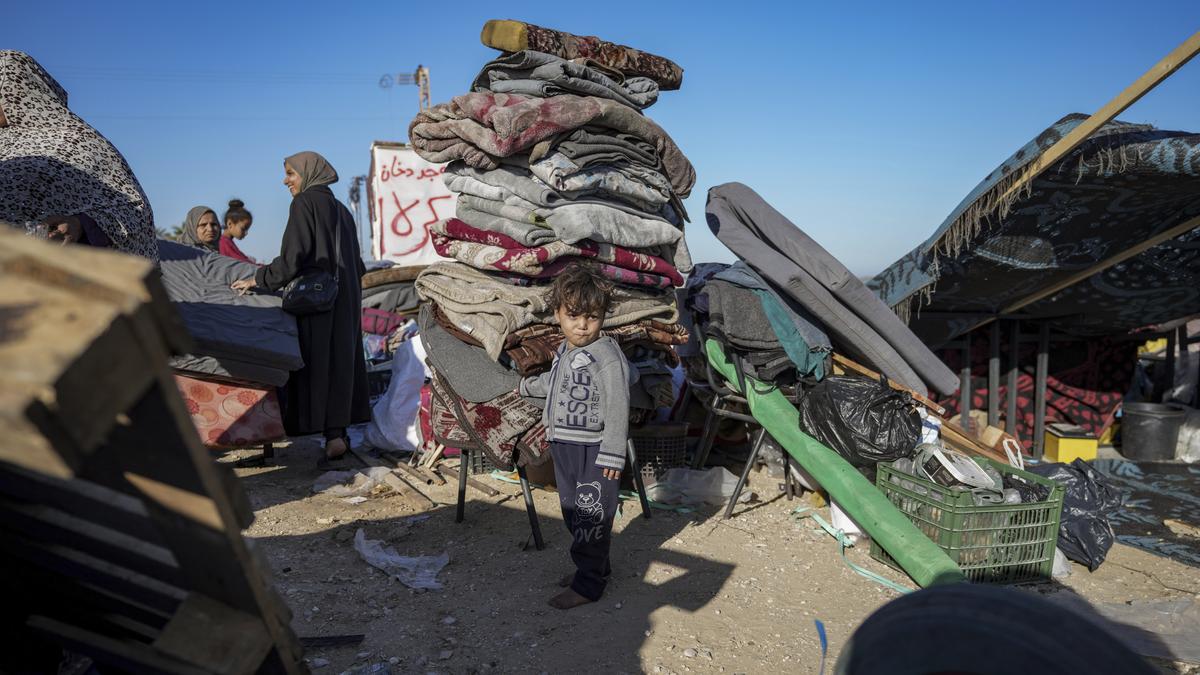
U.S. military says Gaza Strip pier project is completed, aid to soon flow as Israel-Hamas war rages on
The Hindu
U.S. military installs floating pier for Gaza aid delivery amid intense fighting, logistical challenges, and security concerns.
The U.S. military finished installing a floating pier for the Gaza Strip on May 16, with officials poised to begin ferrying badly needed humanitarian aid into the enclave besieged over seven months of intense fighting in the Israel-Hamas war.
The final, overnight construction sets up a complicated delivery process more than two months after U.S. President Joe Biden ordered it to help Palestinians facing starvation as food and other supplies fail to make it in as Israel recently seized the key Rafah border crossing in its push on that southern city on the Egyptian border.
Fraught with logistical, weather and security challenges, the maritime route is designed to bolster the amount of aid getting into the Gaza Strip, but it is not considered a substitute for far cheaper land-based deliveries that aid agencies say are much more sustainable. The boatloads of aid will be deposited at a port facility built by the Israelis just southwest of Gaza City and then distributed by aid groups.
U.S. troops will not set foot in Gaza, American officials insist, though they acknowledge the danger of operating near the war zone.
Heavy fighting between Israeli troops and Palestinian militants on the outskirts of Rafah has displaced some 600,000 people, a quarter of Gaza’s population, U.N. officials say. Another 100,000 civilians have fled parts of northern Gaza now that the Israeli military has restarted combat operations there.
Pentagon officials said the fighting in Gaza wasn’t threatening the new shoreline aid distribution area, but they have made it clear that security conditions will be monitored closely and could prompt a shutdown of the maritime route, even just temporarily. Already, the site has been targeted by mortar fire during its construction and Hamas has threatened to target any foreign forces who “occupy” the Gaza Strip.
The “protection of U.S. forces participating is a top priority. And as such, in the last several weeks, the United States and Israel have developed an integrated security plan to protect all the personnel who are working," said Navy Vice Adm. Brad Cooper, a deputy commander at the U.S. military's Central Command. "We are confident in the ability of this security arrangement to protect those involved.”













